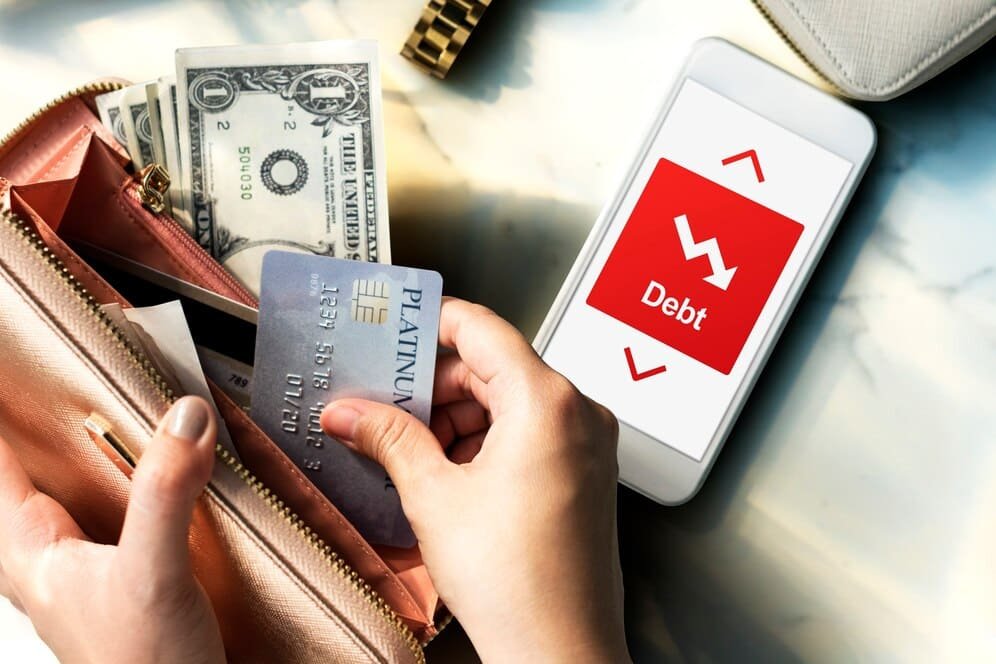
In today’s consumer-driven world, credit cards have become a primary part of our financial lives. Whether for convenience, rewards, or building credit, many rely on plastic to make everyday purchases. But have you ever wondered how you spent every dollar connect to credit cards? In this article, we will unlock the connection and delve into the intricacies of the credit card ecosystem.
From swipe to settlement, every transaction involves a web of players, including merchants, payment processors, and card networks. Understanding how these entities interact can show how your dollar travels from your pocket to the credit card company. Additionally, we’ll explore how each transaction impacts your credit score, highlighting the importance of responsible card usage.
Whether you’re a credit card newbie or a seasoned pro, this article will offer valuable insights into the complex web of transactions that occur every time you purchase. So, join us as we unravel the mystery behind every dollar’s journey in the credit card world.
Table of Contents
The connection between dollars and credit cards
To understand how every dollar connects to credit cards, it’s essential to grasp the inner workings of the credit card industry. From swipe to settlement, every transaction involves a web of players, including merchants, payment processors, and card networks. These entities work together to ensure that your dollar reaches the credit card company and your purchase is recorded accurately.
The journey of a dollar begins when you purchase using your credit card. Whether swiping, inserting, or tapping your card, the merchant’s payment terminal captures the transaction information. This data is then securely transmitted to the payment processor, the intermediary between the merchant and the credit card company.
Once the payment processor receives the transaction details, they transmit it to the respective card network for authorization. The card network, such as Visa, Mastercard, or American Express, verifies the transaction by checking the available credit limit, card validity, and other security measures. The card network sends an authorization code back to the payment processor if the transaction is approved.
Understanding the credit card industry
The credit card industry is a complex ecosystem that involves multiple stakeholders. These stakeholders play different roles in ensuring the smooth flow of transactions and the security of your financial information.
The first player in the credit card industry is the cardholder, which is you, the consumer. As a cardholder, you have the power to make purchases using your credit card and are responsible for paying off the balance within the billing cycle. Your credit score, influenced by your credit card usage, is crucial in determining your financial health and eligibility for future credit.
Merchants are another critical component of the credit card industry. They provide goods and services to consumers and accept credit card payments as a form of transaction. Merchants enter agreements with payment processors and card networks to facilitate these transactions and receive payment for their products or services.
Payment processors act as the bridge between merchants and card networks. They are responsible for securely transmitting transaction data from the merchant’s payment terminal to the card network for authorization. Payment processors also handle settlement, which transfers funds from the cardholder’s account to the merchant’s account.
How did credit cards work?
Credit cards use the principle of borrowing money from a financial institution, usually a bank, to make purchases. When you use your credit card, you essentially borrow money from the issuing bank to pay for your purchase. The credit card company pays the dealer on your guarantee, and you are then asked to repay the credit card company.
Credit cards come with a predetermined credit limit, the maximum amount of money you can borrow. This limit is based on your credit history, income, and creditworthiness. It’s important to note that exceeding your credit limit can result in fees and negatively impact your credit score.
When you receive your credit card statement, it will list all the transactions you made during the billing cycle, along with the amount owed. You can pay the entire balance, which allows you to avoid interest charges, or create a minimum payment, which incurs interest on the remaining balance. Making timely payments is crucial to maintain a good credit score and avoid unnecessary debt.
The role of dollars in the credit card system
Dollars play a vital role in the credit card system as they represent the value of purchased goods and services. Each transaction involves a specific dollar amount authorized by the card network and later settled between the cardholder and the merchant. Understanding the flow of dollars in the credit card system can provide valuable insights into how transactions are processed and recorded.
When you make a purchase, the card network authorizes the dollar amount based on your available credit limit. This authorization ensures you have enough funds to cover the transaction and helps prevent fraud. Once the transaction is authorized, the dollar amount is reserved from your available credit limit until it is settled.
Settlement occurs when the payment processor transfers the reserved dollars from your credit card account to the merchant’s account. This process typically happens at the end of the billing cycle, and the settled dollars are transferred to the merchant’s bank account. The settlement ensures that the merchant receives payment for the goods or services provided, and the cardholder’s credit card balance is adjusted accordingly.
The impact of credit cards on the economy
Credit cards significantly impact the economy, both on a micro and macro level, when the dollar connects to credit cards. On an individual level, credit cards allow consumers to make purchases even when they don’t have immediate funds available. This enables them to meet their needs and desires without waiting or saving up for the total amount.
At a macro level, credit cards stimulate economic growth by increasing consumer spending. When consumers use credit cards, they inject money into the economy, which can lead to increased sales for businesses. This increased spending can positively affect job creation, innovation, and overall economic development.
However, it’s important to note that excessive credit card usage can also have negative consequences. When individuals accumulate debt on their credit cards and struggle to make timely payments, it can lead to financial stress and a decrease in overall economic stability. Additionally, high-interest rates and fees associated with credit cards can contribute to some individuals’ debt cycle.
Benefits of using credit cards
Credit cards can be valuable financial tools when used responsibly, offering a variety of benefits to cardholders:
Building Credit history:
Using a credit card dutifully can help you build a positive credit history. Your credit score is based on various factors, including payment history, amount of debt, and length of credit history. By making timely payments and keeping your credit utilization low, you can demonstrate responsible credit usage and improve your credit score.
Cashback rewards and other incentives:
Many credit cards offer cashback rewards or other incentives that allow you to earn money back on your purchases. These rewards can come in various forms, such as statement credits, gift cards, or travel points that can be redeemed for flights or hotel stays. You can accumulate rewards over time by using your credit card for everyday expenses like groceries or gas.
Protection against Fraudulent Activities
Credit cards protect against fraudulent activities such as unauthorized purchases and identity theft. If you notice any suspicious charges on your credit card statement, you can report them to your credit card company, and they will investigate the issue. You will not be held liable for the charges if you are not responsible for them.
In addition to fraud protection, credit cards often offer purchase protection that covers damaged or stolen items. For instance, if you use your credit card to purchase an expensive item that gets stolen, you may be eligible for a refund or replacement.
Convenience and Flexibility:
Credit cards offer the convenience of not having to carry cash with you. They also provide flexibility in payment options, allowing you to make large purchases and pay them off over time. Some credit cards even have a grace period where you can avoid paying interest on your purchases if the balance is paid in full by the due date.
Emergency Funds:
Credit cards can serve as an emergency fund when unexpected expenses arise. Instead of depleting your savings account, you can use your credit card to cover the cost and pay it off over time. However, it is essential to use this option only for true emergencies and not rely on credit cards as a regular source of funds.
Overall, credit cards can offer a range of security measures to safeguard you and your finances. However, using credit cards responsibly by paying your balance in full each month is crucial to avoid interest charges and accumulating debt. This responsible usage can help you build a positive credit history over time.
Tips for responsible credit card use
To ensure responsible credit card use, consider the following tips:
- Pay your balance in full each month to avoid interest charges.
2. Try to Set up a budget and avoid overspending.
3. Monitor your credit card statements regularly for any unauthorized charges.
4. Make payments on time to maintain a good credit score.
5. Avoid using credit cards for cash advances, often with high-interest rates and fees.
6. Keep your credit utilization ratio low by not maxing out your credit limit.
7. Avoid opening too many credit card accounts, which can negatively impact your credit score.
By following these tips, you can maximize the benefits of credit cards while minimizing the risks associated with their use.
Common misconceptions about credit cards and dollars
There are several common misconceptions about credit cards and their connection to dollars. Let’s debunk some of these misconceptions:
- Credit cards are “free money”: This is not true. Credit cards allow you to borrow money, which you must repay with interest.
- Using credit cards will automatically improve your credit score: While responsible credit card use can help improve your credit score, it’s not guaranteed. Factors such as credit utilization and payment history also play a role.
- Closing a credit card will immediately improve your credit score: Closing a credit card can impact your credit score significantly if it reduces the average age of your credit accounts or increases your credit utilization ratio.
- Carrying a balance on your credit card improves your credit score: Carrying a balance does not necessarily improve your credit score. Making timely payments and keeping your credit utilization low are more critical factors.
- Credit cards are only for people with good credit: Credit cards are available for individuals with all credit histories, including those with limited or poor credit. However, interest rates and credit limits may vary.
Understanding these misconceptions can help you make informed decisions about credit card usage and avoid falling into financial traps.
How Does Every Dollar Connect to Credit Cards?
Do you ever think about how connected every dollar you spend on your credit card truly is? Each time you make a purchase, the credit card company essentially loans you the money to do so. This loan comes with an interest rate that is nearly the cost of borrowing money. This interest rate is typically represented as an annual percentage rate (APR).
Aside from interest rates, various fees are associated with credit cards, including annual fees, balance transfer fees, and foreign transaction fees. These additional charges can quickly add up and significantly impact the overall cost of using your credit card. That’s why it is crucial to carefully read the terms and conditions and understand any potential fees that may come with your credit card.
One crucial aspect to consider when using your credit card is how your payments can affect your credit score. Your credit score is a numerical representation of your creditworthiness and is often used by lenders to determine if you are a reliable borrower. Any late or missed payments and carrying high balances can significantly lower your credit score. As such, making timely payments and keeping your credit card balances low is essential to maintain a healthy credit score.
So, every dollar spent on your credit card is closely linked to interest rates, fees, and your credit score. By understanding how these factors work together, you can effectively manage your credit card spending and maintain a strong credit score. It’s crucial to be mindful of these aspects when using your credit card to make wise financial decisions.
The future of credit cards and digital payments
As technology advances, the future of credit cards and digital payments looks promising. The rise of mobile payment platforms and contactless payments has revolutionized our transactions. With the advent of digital wallets and innovative payment solutions, consumers now have more options.
Digital payments offer convenience, security, and speed. They eliminate the need for physical cards and allow for seamless transactions using smartphones, wearables, or other connected devices. As technology evolves, we can expect to see further integration of digital payments into our everyday lives.
However, it’s important to note that traditional credit cards will not soon disappear. They offer benefits such as broader acceptance, rewards programs, and established infrastructure. The future of credit cards may involve a hybrid approach, where physical cards coexist with digital payment solutions.
Conclusion:
In conclusion, it is crucial to understand the connection between every dollar and credit card when managing your finances. At the same time, credit cards offer convenience and benefits; there is potential for debt, interest payments, and a damaged credit score. Responsible usage is critical to making the most of credit cards while avoiding pitfalls.
You are choosing the correct credit card type that aligns with your lifestyle and spending habits. It is also essential to monitor your credit card spending. And try to make timely payments to avoid interest charges and late fees. Doing so can establish a good credit history and improve your credit score over time.
At whatcard.net, we provide various credit card options to suit your needs. Whether you prefer cashback rewards, travel points, or low-interest rates, we have a credit card that is right for you. Visit our website today to discover more and apply for the perfect credit card for your financial goals. So why wait? Start using credit cards wisely and reap their benefits while avoiding potential downsides!
FAQs: Does Every Dollar Connect To Credit Cards?
Can I connect my credit cards to Every Dollar?
Yes, you can! Every Dollar does offer the option to connect your credit cards, making it easier to track your spending and budgeting.
How do I connect my credit cards to Every Dollar?
You can easily connect your credit cards by going to the “Accounts” tab in Every Dollar and selecting “Add an Account.” From there, you can search for your credit card provider and enter your login information.
Are all credit card providers supported by Every Dollar?
While Every Dollar supports a wide range of credit card providers, there may be some that are not currently compatible. It’s best to check the list of supported providers before attempting to connect your credit card.
Will my credit card information be secure when linked to Every Dollar?
Yes, Every Dollar takes security very seriously and uses bank-level encryption to protect your sensitive financial information.






